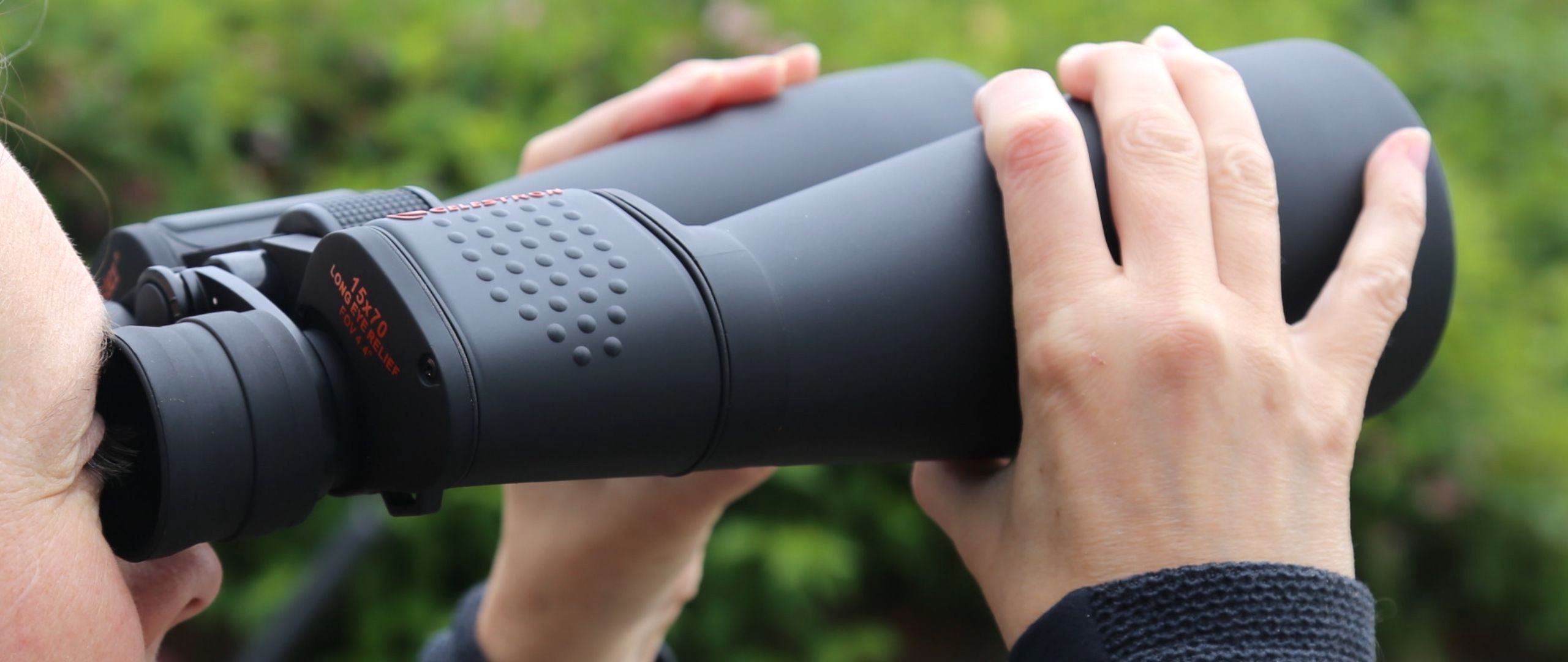Digital Camera World Verdict
Affordable and small enough to carry to dark skies, these dedicated astronomy binoculars are ideal for getting a close-up of deep sky objects, though they are best used on a tripod. We like the fact that they come with a tripod bracket for mounting on a tripod, but they are just about light enough to hold steady for occasional use. That said, if you're going for a long observing session, consider pairing the Celestron Skymaster 15x70 with a good photographic tripod.
Pros
- +
Very affordable
- +
Lots of magnification
- +
Possible to hand-hold
- +
Excellent shoulder bag
Cons
- -
Build quality
- -
Requires tripod
- -
Loose lens caps
Why you can trust Digital Camera World
Go look at any guide to the night sky and we guarantee you will find dozens of celestial sights best viewed through a pair of binoculars. But how big should your binoculars be? Although the 10x50 and 10x42 sizes are thought of as the minimum sizes for astronomy binoculars, it's not until you get to 15x models that you enter the realm of astronomy-only binoculars. Unlike a lot of its rivals, these big binoculars are thoroughly affordable, but are they any good? Here’s what you need to know about the Celestron Skymaster 15x70.
Celestron Skymaster 15x70
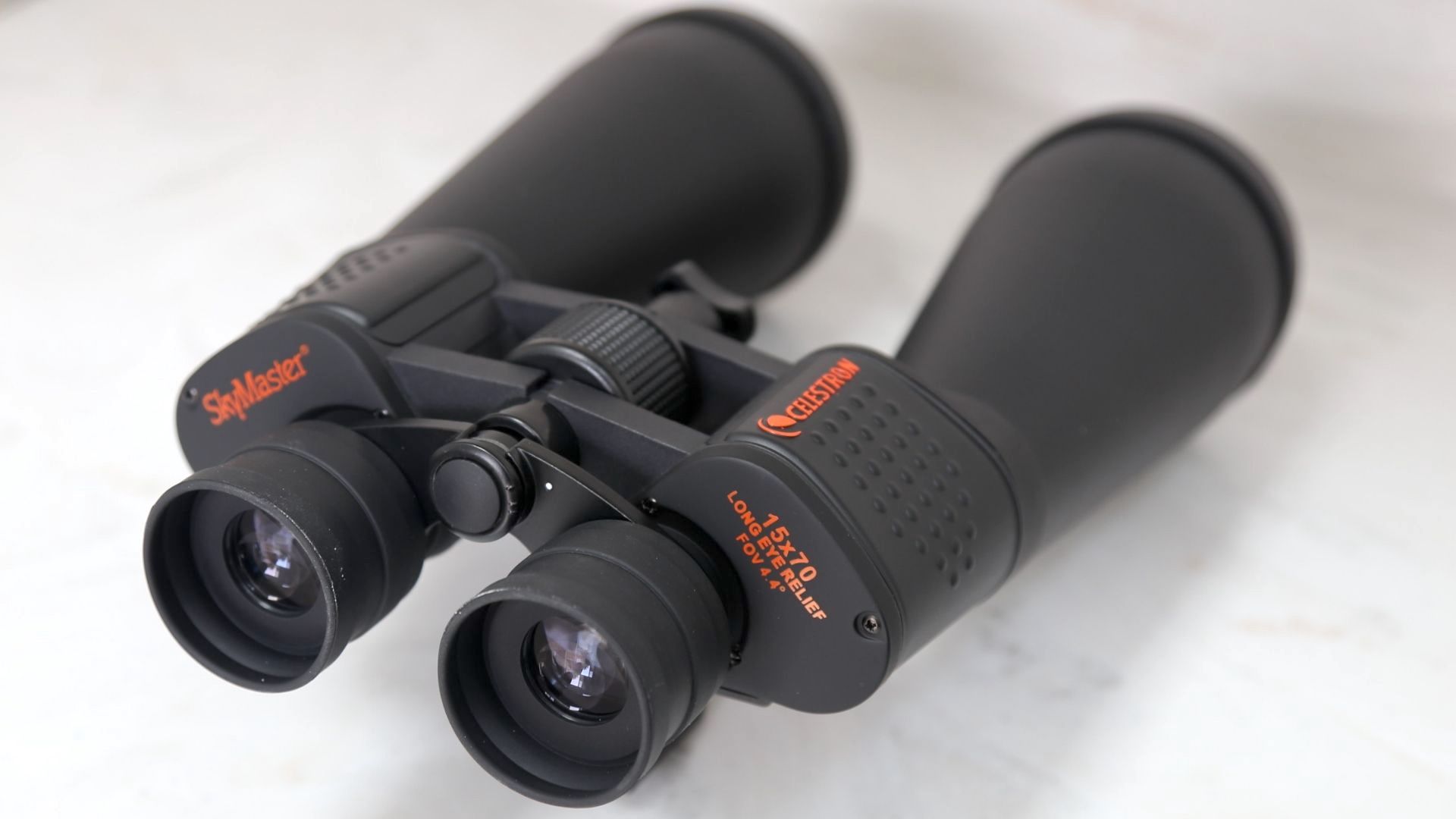
Magnification: 15x
Objective diameter: 70mm
Field of view at 1000m: 77m /231 ft
Closest focusing distance: 13m /43 ftt
Eye relief: 18mm / 0.71”
Weight: 1.36g / 48oz
Dimensions: 220 x 110 x 280mm /8.7 x 4.3 x 11”
Celestron Skymaster 15x70 key features
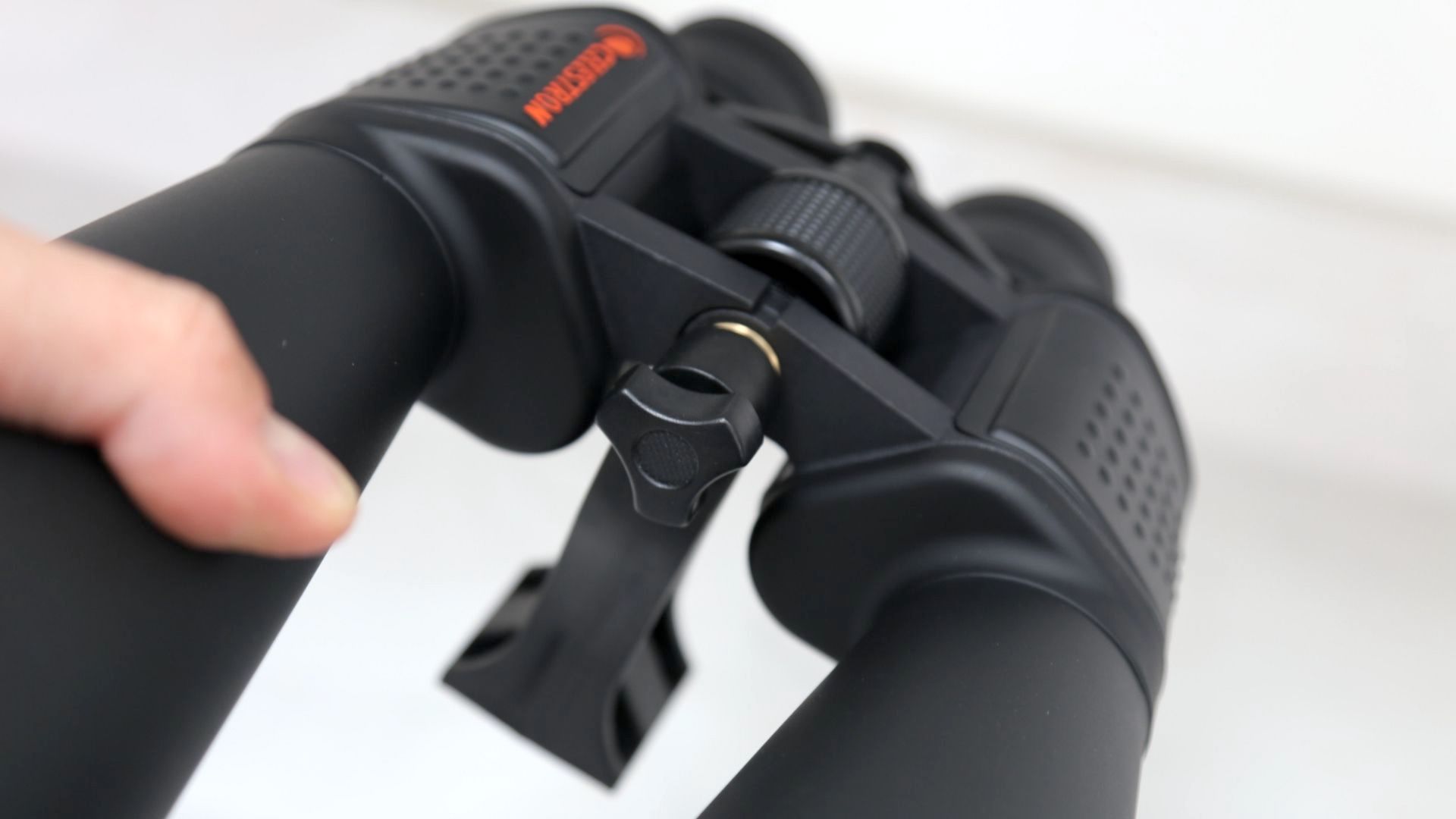
The two most important features of the Celestron Skymaster 15x70 are their size and low price. Almost insanely affordable, we can see these large binoculars being purchased for occasional use, perhaps spending most of the year in a cupboard but being brought outside for special astronomical occasions.
With 15 times magnification and 70mm objective lens diameter, these binoculars are perfect for deep sky observing. Sure, you can get 20x80 models – something Celestron also manufactures – but the Celestron Skymaster 15x70 are far later and can just about be held handheld. What you don't get on these binoculars is the waterproofing, nitrogen-purging and proprietary XLT coatings that Celestron uses on their Skymaster Pro lineup. In the box you'll also find a L-shaped tripod adapter for mounting these binoculars onto a photographic tripod, as well as a simple shoulder bag.
Celestron Skymaster 15x70 build & handling
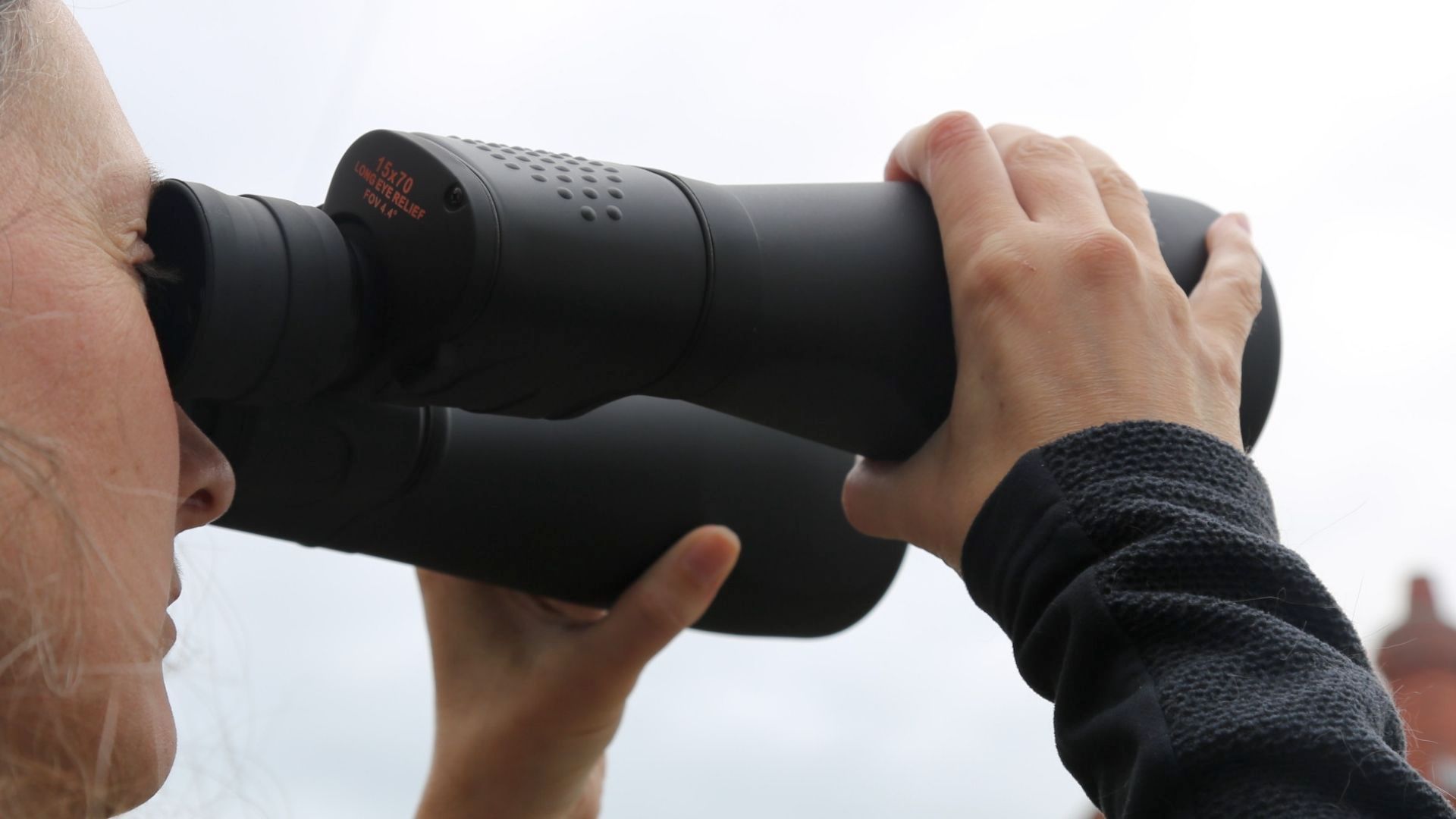
Can you hold the Celestron Skymaster 15x70 steady enough for stargazing? Just about. Although we wouldn't recommend using them for long periods, or even as your main pair of astronomy binoculars, their 1.36g/48oz bulk is actually remarkably lightweight for a pair of binoculars of this size. Perhaps they’re too light.
Although we cannot report any issues during our review, we don't fancy their chances if the Celestron Skymaster 15x70 were dropped or bashed. The shoulder bag is just about enough to keep these binoculars away from the elements, but do bear in mind that the binoculars are not waterproof and that the caps on the objective lenses and both flimsy and fall-off too easily.
Celestron Skymaster 15x70 performance
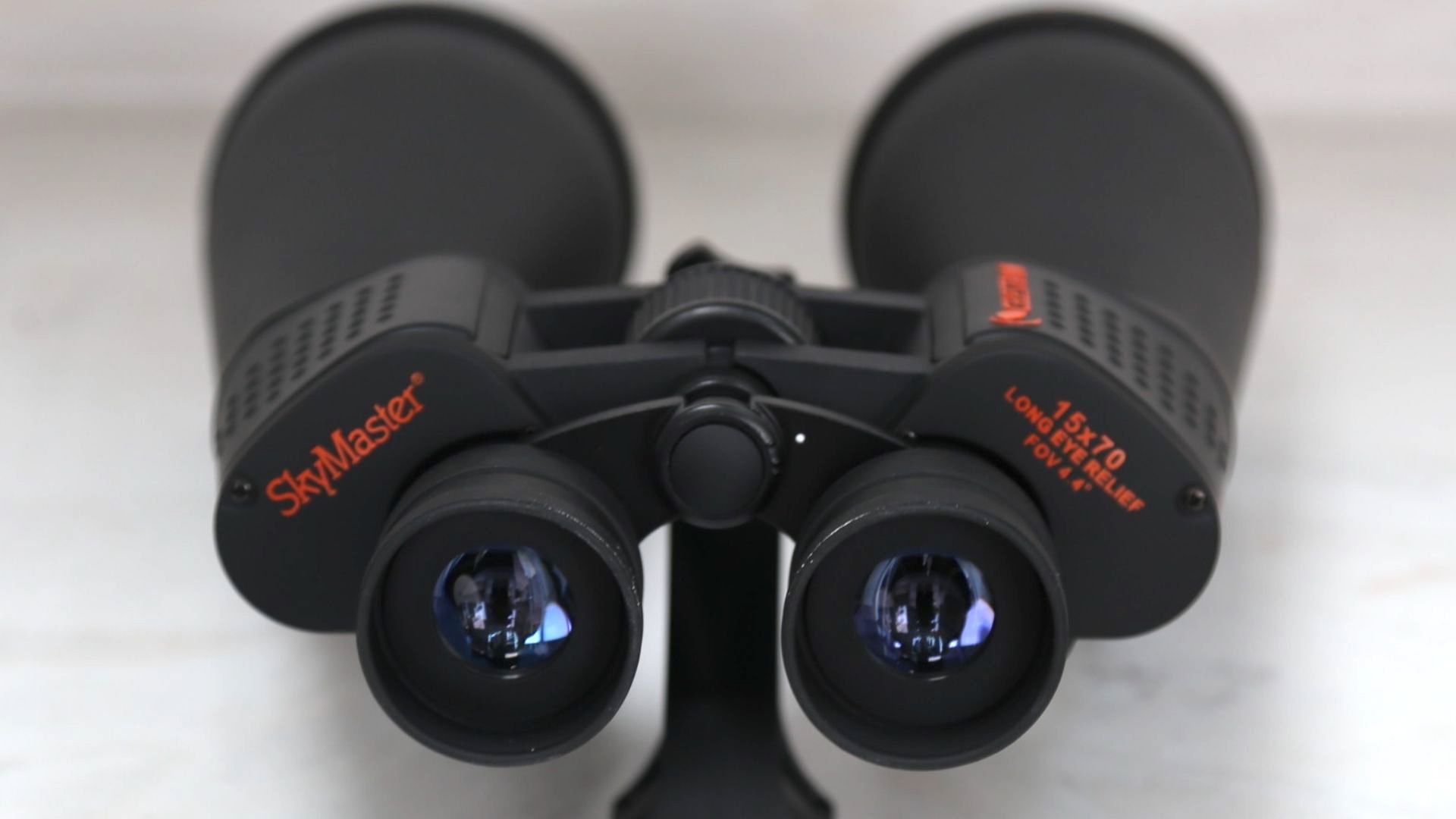
The Celestron Skymaster 15x70 acts almost as a mini-telescope. There are some parts of the night sky that can only be reached by a good pair of 15x70 binoculars. We pointed the Celestron Skymaster 15x70 at M29/NGC 6913, an open cluster of stars in the summer constellation of Cygnus, the Swan, and got a good, sharp view of its 50 or so easily visible stars.
ÒWe then scanned the rich starfields around Cygnus using the Celestron Skymaster 15x70 and got exquisitely close-in views. Pointed north we also managed to glimpse the M81 and M82 galaxies, which are just out of range of smaller binoculars. The field of view is mostly sharp throughout with only a tiny drop-off towards the edge. We also liked the fact that you get lots of eye relief, which makes it easier for wearers of glasses to get a reasonably immersive view.
However, such is the close-up you get with the Celestron Skymaster 15x70 that it’s worth already having at least a basic knowledge of the night sky to lessen the chance of getting completely lost.
Celestron Skymaster 15x70 verdict
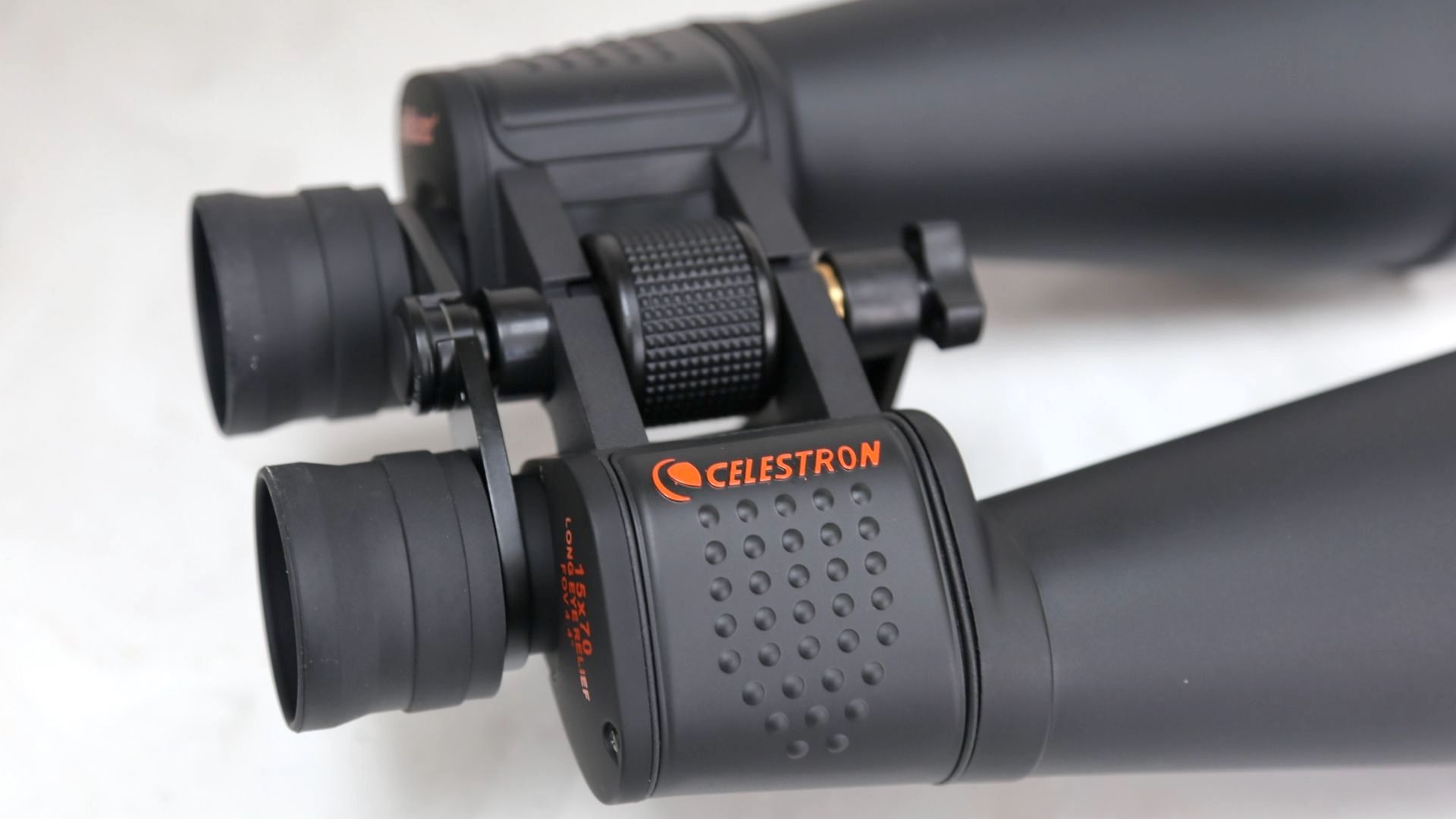
The Celestron Skymaster 15x70 have been on sale for over five years and have become a bit of a classic in the world of astronomy binoculars, though they do require careful owners. Their rather flimsy build quality – at least when compared to the step-up SkyMaster Pro binoculars elsewhere in Celestron’s stable – may be a long-term worry, though during our review all we got was dependably sharp and impressive views of open clusters, starfields and galaxies.
Read more:
• The best binoculars
• Best budget binoculars under $100
• Best marine binoculars
• Best rangefinder binoculars
• Best compact binoculars
• Best opera glasses
• Best binocular harnesses
• Best binocular tripod adapter
• The 10 best spotting scopes
• The best night vision goggles
• The best opera glasses
• The best telescopes for astrophotography

Jamie has been writing about photography, astronomy, astro-tourism and astrophotography for over 15 years, producing content for Forbes, Space.com, Live Science, Techradar, T3, BBC Wildlife, Science Focus, Sky & Telescope, BBC Sky At Night, South China Morning Post, The Guardian, The Telegraph and Travel+Leisure.
As the editor for When Is The Next Eclipse, he has a wealth of experience, expertise and enthusiasm for astrophotography, from capturing the moon and meteor showers to solar and lunar eclipses.
He also brings a great deal of knowledge on action cameras, 360 cameras, AI cameras, camera backpacks, telescopes, gimbals, tripods and all manner of photography equipment.
